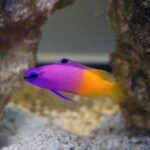Festivals and Customs Featuring Dragon Symbolism in China
The dragon (龙, lóng) has been an integral part of Chinese culture for millennia, symbolizing power, wisdom, prosperity, and divine protection. This mythical creature plays a significant role in various traditional festivals, rituals, and customs across China. Whether appearing in grand parades, elaborate ceremonies, or local traditions, dragons are celebrated as spiritual guardians, bringers of fortune, and symbols of cultural identity.
This article explores the role of dragons in Chinese festivals and customs, highlighting their historical roots, symbolic meanings, and regional variations.
1. The Role of Dragons in Chinese Festivals
Dragons appear in many Chinese festivals, especially those linked to seasonal transitions, celestial events, and mythological beliefs. Their presence in celebrations often represents strength, unity, and good fortune.
1.1 Dragon as a Symbol of Good Luck and Prosperity
- In Chinese culture, dragons are associated with heavenly blessings.
- Many festivals incorporate dragon imagery to attract prosperity, drive away evil spirits, and ensure a successful year.
- The dragon’s connection to rain and water makes it particularly important in agrarian festivals.
1.2 Dragon Dance as a Central Element in Celebrations
- The Dragon Dance (舞龙, Wǔ Lóng) is a key performance in many festivals, symbolizing energy, protection, and renewal.
- The longer the dragon in the performance, the greater luck and fortune it is believed to bring.
2. The Dragon’s Role in Major Chinese Festivals
2.1 Chinese New Year (春节, Chūnjié) and the Dragon Dance
Chinese New Year, also known as the Spring Festival, is the most significant festival in China. Dragons play a crucial role in its celebrations.
Dragon Dance Performances
- The Dragon Dance is performed in towns and cities across China during the Lantern Festival (元宵节, Yuánxiāo Jié), which marks the end of the New Year celebrations.
- Performers manipulate a long dragon figure on poles, moving in a fluid, snake-like motion to mimic a dragon flying through the sky.
- The dragon is often accompanied by firecrackers, drums, and gongs, creating a powerful spectacle.
Dragon Symbolism in Decorations
- Red and gold dragon decorations are commonly used to attract good fortune and prosperity.
- Dragon-shaped lanterns symbolize illumination, wisdom, and protection against misfortune.
2.2 Dragon Boat Festival (端午节, Duānwǔ Jié)
The Dragon Boat Festival, held on the 5th day of the 5th lunar month, is one of the most famous dragon-related celebrations in China.
Origins and Mythology
- The festival commemorates Qu Yuan (屈原), a patriotic poet who drowned himself in the Miluo River in protest against political corruption.
- Legend says that villagers paddled boats and threw rice dumplings (粽子, zòngzi) into the river to prevent fish from eating his body.
Dragon Boats and Racing Tradition
- Today, dragon boat races are held across China, featuring long, colorful boats carved in the shape of dragons.
- Each boat has a dragon head at the front and a dragon tail at the back, symbolizing strength, courage, and team spirit.
- The races are accompanied by drumming, mimicking the dragon’s heartbeat and ensuring an energetic performance.
2.3 The Mid-Autumn Festival (中秋节, Zhōngqiū Jié) and Dragon Symbolism
Although primarily associated with the moon and family reunions, the Mid-Autumn Festival features dragon-themed celebrations in certain regions.
Fire Dragon Dance (舞火龙, Wǔ Huǒ Lóng)
- In Hong Kong’s Tai Hang district, a Fire Dragon Dance is performed, featuring a massive dragon made of straw and covered in incense sticks.
- The dance is believed to ward off bad luck and ensure a prosperous year ahead.
Dragon-Shaped Mooncakes
- Some regions make mooncakes (月饼, yuèbǐng) in the shape of dragons, symbolizing power and celestial blessings.
2.4 The Water-Splashing Festival (泼水节, Pōshuǐ Jié) and the Dragon King
The Water-Splashing Festival is an important celebration for the Dai ethnic minority in Yunnan Province.
Honoring the Dragon King (龙王, Lóngwáng)
- The festival is linked to the Dragon King, the deity of rain and rivers.
- Locals splash water on each other to bring good fortune and purify the soul.
Dragon-Themed Rituals
- Dragon statues are placed near temples and rivers to ensure abundant rain and agricultural prosperity.
- Some communities perform dragon boat processions in honor of the water deity.
3. Dragons in Local Customs and Rituals
Beyond national festivals, dragons feature prominently in regional and religious customs across China.
3.1 The Worship of the Dragon Totem in Northern China
- Some northern villages hold Dragon Totem Worship Ceremonies, where people offer incense and prayers to dragon sculptures.
- The custom originates from ancient shamanistic traditions, where dragons were revered as protectors of the land and sky.
3.2 Dragon Rituals in Taoist Temples
- Taoist temples hold dragon-themed ceremonies, where priests chant prayers and burn dragon-shaped incense.
- In certain temples, believers perform “Dragon Blessing Rituals”, asking for health, wealth, and protection from disasters.
3.3 Dragon Dances at Weddings and Business Openings
- In many regions, dragon dances are performed at weddings, store openings, and other major events to bring prosperity and success.
- Business owners believe that inviting a dragon dance will attract good luck and drive away misfortune.
4. The Evolution of Dragon Festivals in Modern China
While traditional dragon festivals remain popular, they have also evolved in contemporary times.
4.1 Dragon Festivals as Tourist Attractions
- Many cities now hold international dragon dance competitions, attracting performers from around the world.
- The Dragon Boat Festival has been recognized as a UNESCO Intangible Cultural Heritage, leading to global celebrations.
4.2 Digital and Modernized Dragon Celebrations
- In some cities, 3D light shows now project animated dragons onto skyscrapers during festivals.
- Digital dragon performances are featured in online celebrations and television broadcasts.
Conclusion: The Enduring Legacy of Dragons in Chinese Festivals and Customs
The dragon remains a timeless and revered figure in Chinese culture, playing a crucial role in festivals, ceremonies, and daily traditions. Whether in grand dragon dances, thrilling boat races, or sacred temple rituals, the dragon’s presence represents strength, fortune, and spiritual connection.
As China continues to modernize, these dragon-related customs persist and evolve, ensuring that the mythical dragon remains a living symbol of cultural identity and national pride.



